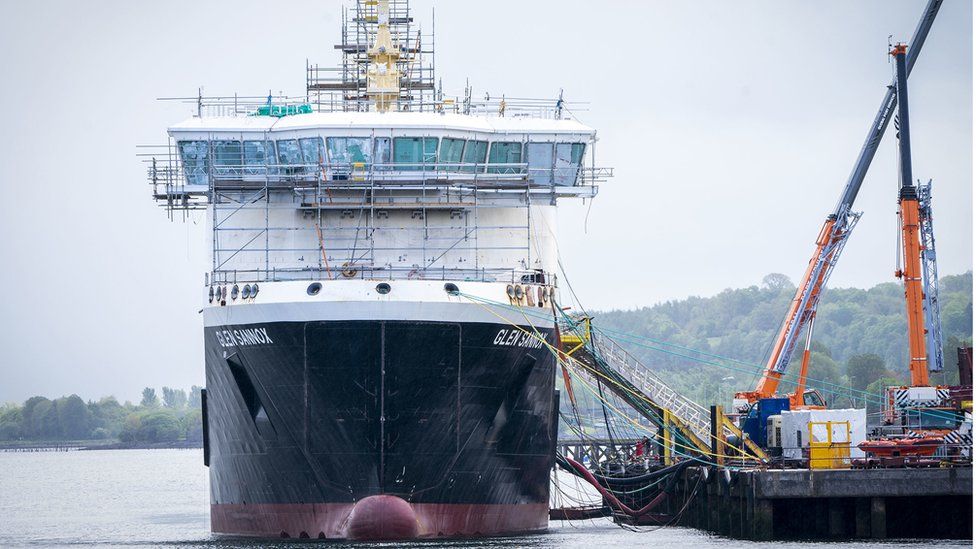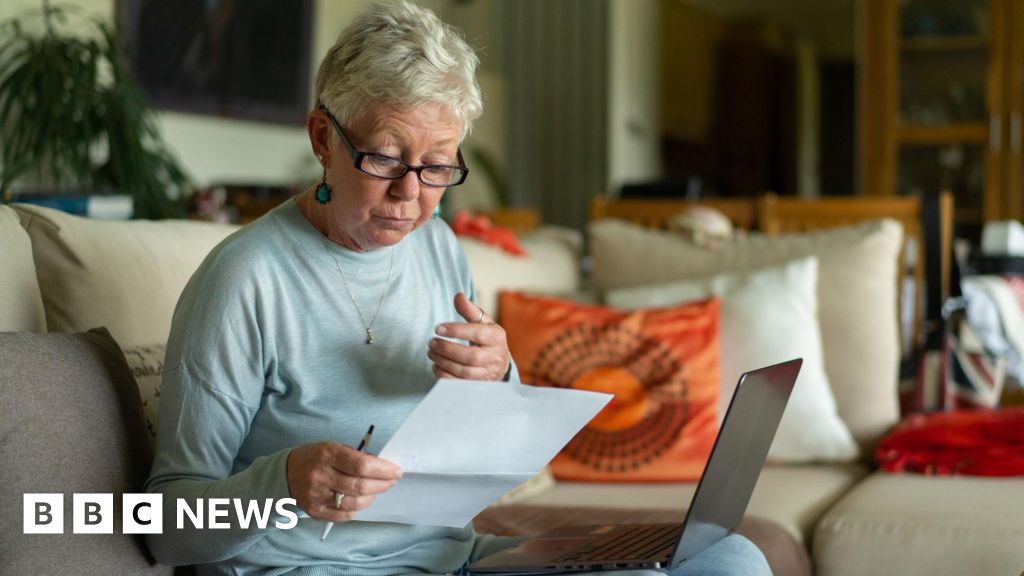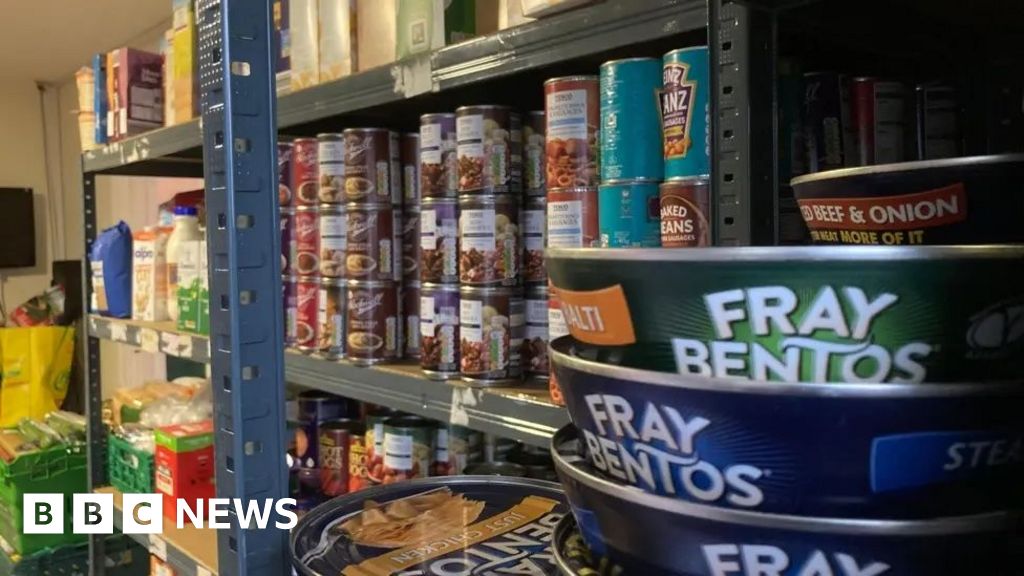ARTICLE AD BOX
By BBC Disclosure
BBC Scotland
 Image source, PA Media
Image source, PA Media
A leaked dossier has suggested the process of awarding a £97m Scottish ferries contract may have been rigged.
Documents obtained by BBC Disclosure indicate that successful bidder Ferguson Marine Engineering benefited from preferential treatment.
The two ferries are still being built for CalMac, but will be at least £150m over budget and five years late.
Deputy First Minister John Swinney said he was concerned by the BBC findings and would look into the matter further.
Government-owned ferries agency CMAL defended the procurement and said an audit in 2018 found "no adverse issues".
The BBC documentary, however, uncovered evidence of a number of irregularities:
- CMAL may have broken its own rules by allowing Ferguson to go ahead with its bid despite being unable to provide evidence of a builders refund guarantee, a mandatory financial safeguard
- Ferguson obtained a 424-page document from a design consultant setting out CalMac's technical requirements, while other bidders had to rely on a more limited 125-page specification. A key section of its bid was mostly cut-and-pasted from this longer document
- The shipyard was allowed to significantly change its design halfway through the tender by developing a variant mentioned but discounted in its original submission.
- This change also allowed it to reduce its price by nearly £10m, making it more competitive
- CMAL assessors held a "confidential" meeting with Ferguson, the only bidder to receive an in-person meeting
The Port Glasgow shipyard fell into administration in August 2014, but was bought a week before the independence referendum by Jim McColl, a businessman who sat on First Minister Alex Salmond's council of economic advisers.
The following year his new firm, Ferguson Marine Engineering Ltd (FMEL), won a £97m contract to build two dual fuel LNG vessels for state-owned ferry operator CalMac.
But the project has been beset by problems and the yard has been nationalised after going back into administration.
The delays have added to pressure on CalMac's old and increasingly unreliable fleet. The Arran route, where the first ship was due to enter service in 2018, has faced more than 2,500 cancellations in the past five years.
CMAL has previously said that Ferguson was named preferred bidder because it produced the most detailed concept design, outscoring other shipyards on quality even though it was the most expensive.
However, the BBC has learned that two expert reports submitted during the tender process did not support that evaluation.
One, by ferry operator CalMac, found that a rival bid from a Polish shipyard best met its requirements, while an independent naval architect noted that FMEL's initial design was heavier and less efficient than the others.
John Kerr, a former CalMac technical director who was asked to review some of the leaked documents, was surprised Ferguson was then allowed to submit a revised, far lighter design after the tender deadline, describing it as effectively "a new bid".
The documents indicate that no other bidder was given a similar opportunity to revise its submission so significantly. One design was eliminated because it was considered overpowered.
A procurement law expert told Disclosure claims of unequal treatment of bidders in tender processes can lead to breaches in EU law and potential legal action from unsuccessful bidders.
Jim McColl said "with hindsight" having the CalMac document put Ferguson in a strong position
Jim McColl confirmed to BBC Disclosure that he first looked into buying Fergusons at least two months before it went bust.
He sent in senior staff to examine business opportunities but felt there were too many issues that needed "tidying up" and waited until it fell into administration.
When he later agreed to buy the yard, he said there were "no sweeteners" - but that he insisted on a letter from Alex Salmond promising a £12m order for a small CalMac ferry to enable him to re-employ the workers.
He said he had no knowledge of being given special treatment for the larger ferries but accepted that having CalMac's requirements document was an advantage.
He said: "With hindsight, it put us in a very strong position, because we were responding to what CalMac were looking for, and not what CMAL had put out to... the other yards.
"We didn't know about that at the time."
The BBC understands Ferguson obtained the document from design consultants it had hired to help with its bid.
CMAL had used the same firm to help draft the tender pack which went to bidders, but has previously told MSPs it saw nothing problematic in this.
Edward Mountain, who was convener of a Holyrood committee that looked into the ferries scandal two years ago, told the programme he had "real concerns" that MSPs "haven't been told the whole truth about what happened in this procurement process".
Deputy First Minister John Swinney has pledged to look into the new evidence
Deputy First Minister John Swinney said the information presented by BBC Disclosure would be investigated further.
He said: "It is material that I take seriously, about which I have concerns, which raises fundamental issues for me about the fairness and the appropriateness of the tender process."
He said he was not aware of any interference by ministers or civil servants in the procurement process.
CMAL said in a statement that new information contained in the programme would need to be "carefully investigated". It added that some staff employed at the time had now left.
It said its board had voiced concerns to Transport Scotland about the contract award to Fergusons, particularly in relation to the lack of refund guarantees, which were well-documented.
CMAL confirmed that an in-person meeting for the purposes of clarification did take place at the shipyard on 4 June, but said it believed this was normal and appropriate.
The current chief executive of CMAL, Kevin Hobbs, declined to be interviewed and when confronted by BBC Disclosure about the findings, made no comment. CalMac declined to give either an interview or a statement.
CMAL and Jim McColl's former management team have blamed each other for problems that later developed with the construction of the ships.
In 2019, the shipyard went back into administration and was nationalised after ministers rejected a last-ditch offer from Mr McColl to split the cost of completing the two ferries, claiming this would breach EU state aid rules.
Image source, PA Media
Image caption,Glen Sannox floated high in the water after it was launched in 2017 because so much equipment had yet to be fitted
The government then appointed a "turnaround director", Tim Hair, who reported it would cost an extra £110m to finish the vessels.
His 454-day tenure in the role cost the taxpayer almost £1.3m but BBC Disclosure has learned that it ended in more disillusionment for the workforce.
Representatives told the programme they became increasingly worried about the growing number of managers being taken on, which they felt undermined long-term competitiveness, with little evidence of progress.
GMB convener John McMunagle said the concerns were raised at board meetings, where they highlighted that there were "managers everywhere" - but they could not get steelworkers.
The documentary learned that last November union representatives told Finance Secretary Kate Forbes they had lost confidence in the senior management team.
The following month it was announced that Mr Hair was moving on. He has been contacted for comment.
Despite many false dawns, the workforce told the BBC there was now a growing optimism that the ferries would be completed next year, and that the modernised shipyard could restore its reputation.
Reporting team: Mark Daly, Kevin Anderson, Calum Watson, Katie McEvinney

 2 years ago
58
2 years ago
58








 English (US) ·
English (US) ·